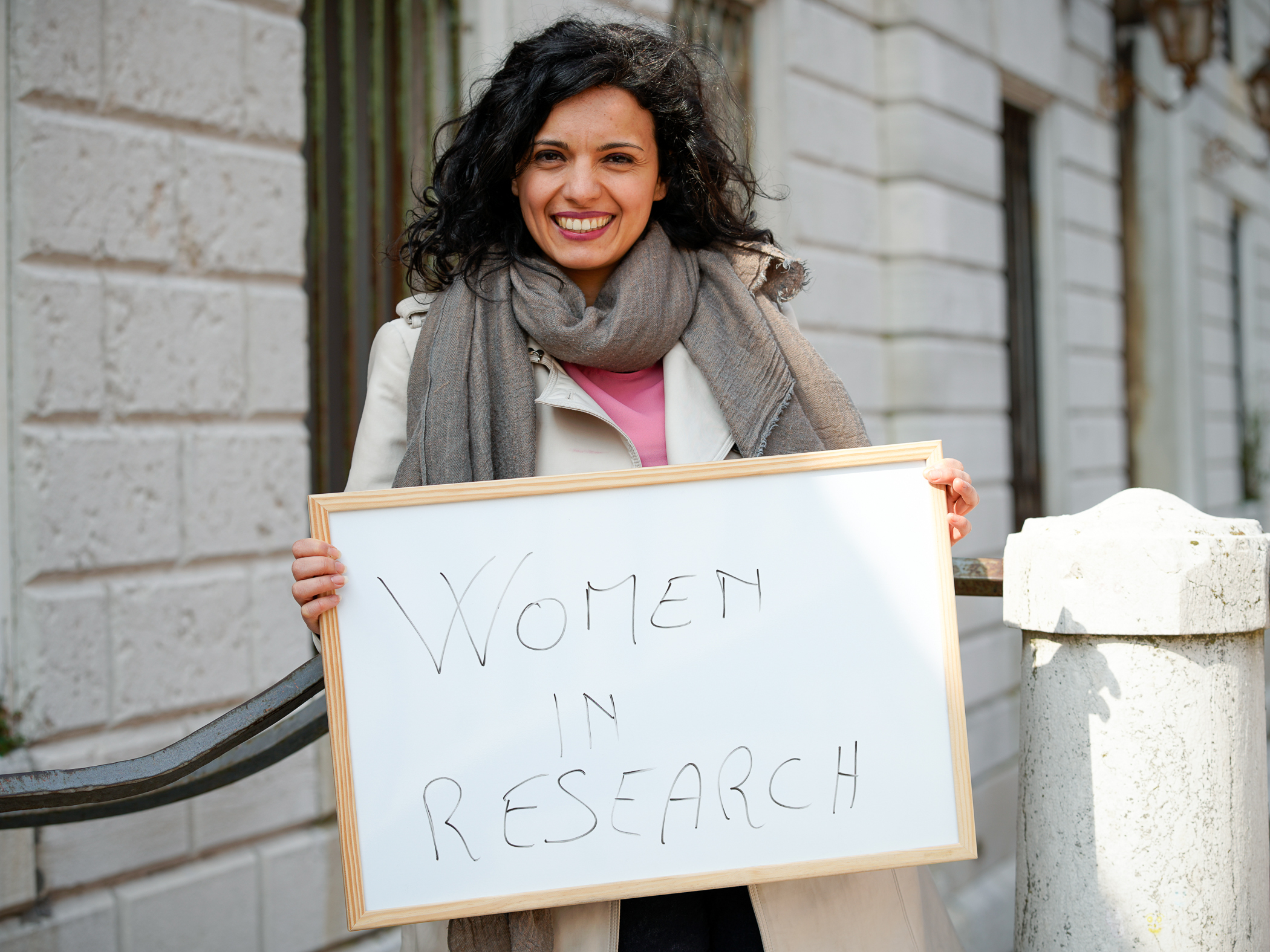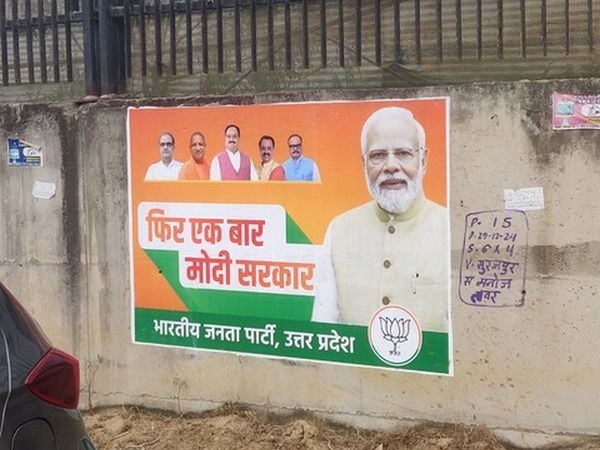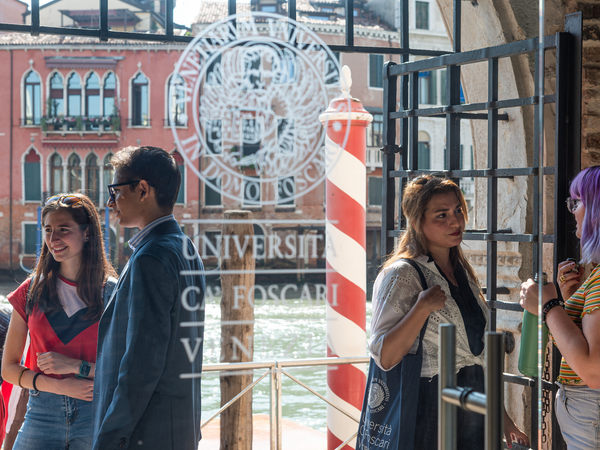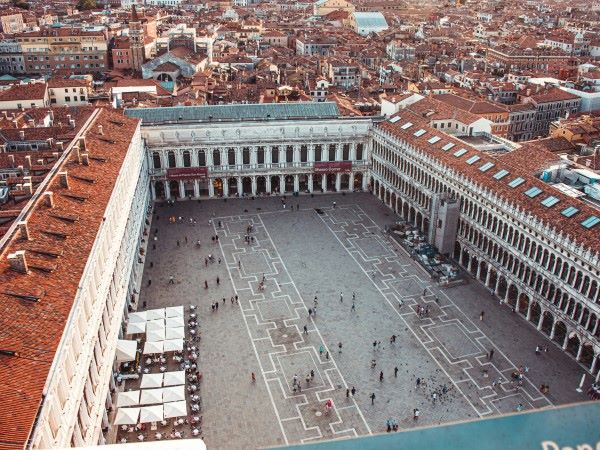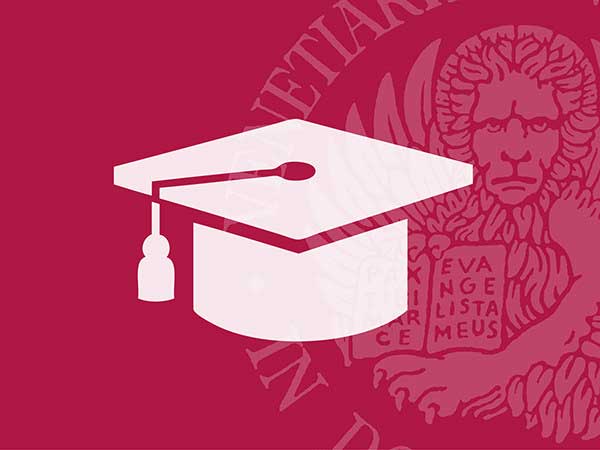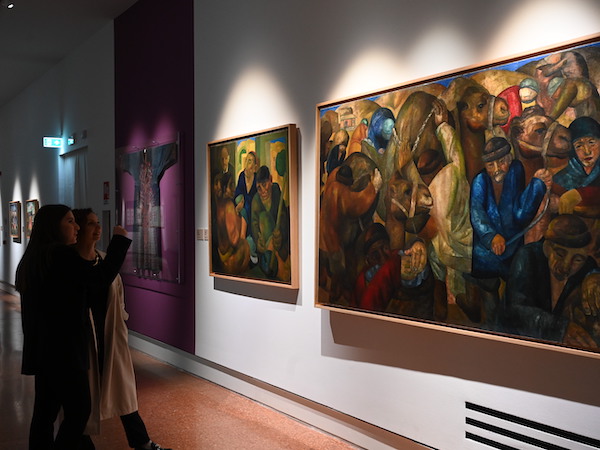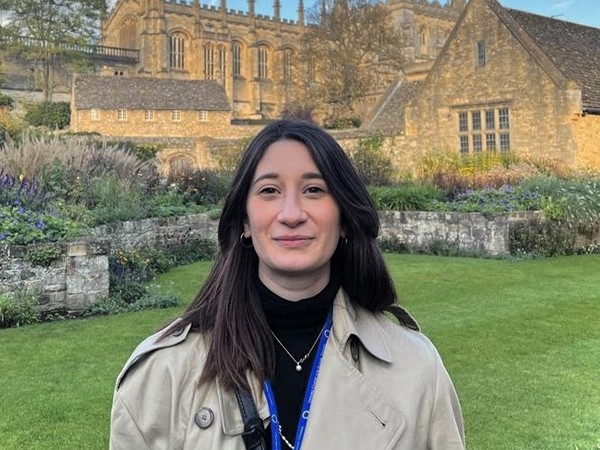Historians should play a more active role in public discourse and political decisions should be based on correcting the mistakes of the past. The contemporary historian Deborah Paci is convinced of this. A researcher at the Department of Humanities at Ca’ Foscari, amongst many things, she focuses her research on Digital History.
After having studied at the Università di Bologna and at the Université Paris VII Denis Diderot, where she studied the anarchist and federalist thought of Pierre Joseph Proudhon, and after having taught and researched in France, Greece, Malta, Sweden and Finland, Paci focuses on two main aspects of research. One is the theme of insular imaginary and of fascist irredentism in the Mediterranean. The other was developed at the Venetian university, linked to Digital History.
Let’s start with the islands.
In my doctoral thesis I analysed Irredentism led by Italian fascism in Corsica and in Malta from the twenties to the forties. After I finished my doctorate at the Università di Padova in collaboration with the Université de Nice Sophia Antipolis, I published a monograph entitled ‘Corsica fatal, Malta baluardo di romanità. L’irredentismo fascista nel mare nostrum (1922-1942)’ (Florence, Le Monnier-Mondadori Education, 2015). My four-year postdoctoral research at the Department of Linguistics and Comparative Cultural Studies at Ca’ Foscari entitled Floating Islands: The Representation of Mediterranean and Baltic Islands in the 20th and 21st Century deals with the role of islands in the Mediterranean and the Balkans in the representations of European institutions from the mid-1980s to today. This research was part of a larger project Spaces of Expectation. Mental Mapping and Historical Imagination in the Baltic Sea and Mediterranean Regions promoted by Ca’ Foscari University of Venice and Södertörns högskola of Stockholm financed by Östersjöstiftelsen (Baltic Sea Foundation), which examined the geopolitical valences of the historical imaginary connected to the two ‘maritime regions’.
Part of my research has resulted in the publication of a monograph on the Åland Islands, which traces the history of this small Finnish archipelago inhabited by a majority Swedish speaking population. The interesting thing is that in 1917, during the Bolshevik occupation, this archipelago experienced a period of irrentistism, with a movement that inspired annexation to Sweden. The question was resolved in 1922 by the League of Nations, which recognised Finnish sovereignty but also strong Åland autonomy. We deal with one of the most interesting cases in peaceful resolution of conflicts that involve minority language speakers. It meant that the South Tyrolean authorities currently maintain regular contact with the Dutch government, which highlights the relevance of the Åland Islands model, renamed ‘Islands of Peace’.
You run a contemporary history online journal.
I am the co-founder and director of Diacronie. Studi di storia contemporanea, online, open-access quarterly journal, which is close to its completion in its tenth year of publication. It's one of the first digital science journals in the historical profession that, from my point of view, range from the acquisition of data, to the same dissemination of historical research. Diacronie has a strongly international editorial board and directing committee. It can be accessed through the website www.diacronie.it or through the Francophone portal of the journal www.revues.org, a large open-access project that hosts 481 scientific journals. We publish it in four languages (Italian, English, French and Spanish), precisely because we have contacts in Europe and Latin America, and we translate from Italian into German, Portuguese and Modern Greek. This is also the beauty of working in a digital framework! It allows you to geographically navigate and cultivate an important international academic network.
At Ca’ Foscari you are a part of the team Odycceus.
I have been a permanent researcher at the Department of Humanities since September 2017, and am carrying out research in Anti Semitism discourse in France during the 19th and 20th centuries through the analysis of big data. This research is part of a wider European project Odycceus, acronym of Opinion Dynamics and Cultural Conflict in European Space. Of which Massimo Warglien is the leader for Ca’ Foscari and Simon Lewis Sullam is the historical representative. As well as me, the group also works with Rocco Tripodi.
We are rewriting the the path of anti-semitism in France during the 19th and 20th centuries. We are analysing anti-semitic discourse through volumes and digitised periods from the Bibliotèque nationale de France and found in his large digital library that is Gallica which includes thousands of documents in digital format that can be searched for within the text. We have isolated some keywords for example, juif or judaisme, and through a web application we created ad hoc we have extracted the texts that contain them. So this is the corpus on which we will work through text analysis and network analysis. So how and when could anti-semitism have arisen? We are waiting for the answers to such questions. The purpose of Odycceus in fact, is to provide and prevent social conflicts by tracing the evidence from verbal confrontations. In the first phase we focused in particular on an anti-semitic Catholic journalist, Édouard Drumont, author of La France Juive and a key figure in French anti-semitism. I have used network analysis to explore Drumont’s contact network. Once the network is rebuilt we will study the characters mentioned and their connections.
Are you analysing what would today be Drumont’s facebook profile?
In a sense yes, Odycceus is also involved in analysing social networks, of course not for the historical part. At the end of the project we expect to have a composite mapping of people, events and reports useful for tracking the trend of anti-semitism and identifying its peaks. We foresee a quantitative analysis, after which we will produce a ‘classic’ archival research on the key characters. We have already identified some particular anti-semitic moments’, such as the Dreyfus Affair and the Panama Scandal. All episodes in which the Jews were blamed for a degrading political-economic solution. At the end of the project an open source online platform will be developed, Penelope, dedicated in particular to the press, which will allow individual polarisations and conflicts in power by analysing millions of posts published on social networks, tweets and articles in all languages of the European Union.
Can you give us an example of how Penelope could have an impact on our lives?
It is difficult to say at this phase of research. Let’s take the example of a sleepy town that suddenly awakens, manifesting itself in the eyes of the xenophobic and violent public opinion. Perhaps we could have foreseen this resurgence of racism by investigating the posts and tweets related to that same city before xenophobic episodes emerged?
What does it mean for you to be a historian?
I believe that us historians should play a more active role in public debate. The historic perspective helps to assess situations in a more lucid way. However, in this post-ideological era not all historians take positions with respect to matters of collective interest. I think it's only right that the academic does not stay on the ivory tower. Unfortunately for those whose careers are precarious it is more complicated: they are too busy with anxiety about their future job to participate actively in public life. Precariousness may mean giving up the prime role of the historian, which is reflection on the past aimed at responding to the needs posed by the contemporary.
Do you believe that in the academic field there are different career opportunities between men and women?
I would not say this, but I believe that those who want to pursue a career and choose motherhood at the same time encounter great difficulties, in all areas, but especially in the university, due to the long amount of time that it takes. My post-doctoral period at Ca’ Foscari gave me a lot of professional satisfaction and during this period, I also had my two children. I found it to be a favourable environment for combining work and family, thanks to the sensitivity of the team I was working with. Being a researcher and a mother is not easy, because it causes instability.
Federica Scotellaro





